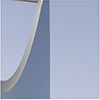4 min read • Financial Services
Islamic finance comes of age
<p>With global financial markets in flux, sharia-compliant banking is an increasingly attractive option for Western investors and financial institutions</p>
A new report released today by management consultancy Arthur D. Little entitled “Islamic Finance Comes of Age” has identified a surge in activity around Islamic finance as a promising opportunity for the global financial services industry as it emerges from the current recession. With Islamic finance assets currently standing at $800 billion, Arthur D. Little expects this figure to surge to as much as $4 trillion in the next six years, representing a major opportunity for Western financial institutions looking to develop new partnerships and global markets.
A global market overview
Arthur D. Little’s latest report investigates 10 capital markets in selected Islamic countries, each of which offers the Western investor different opportunities, due to their varied levels of market maturity and sophistication. Arthur D. Little groups the 10 markets into three clusters, helping financial players to identify the best strategies for entering each Islamic finance market. The full report includes a detailed analysis of the current state of development in all 10 capital markets.
- The Big Four – The Kingdom of Saudi Arabia (KSA), Kuwait, the UAE, and Malaysia have highly developed capital markets, which are supported by both government and private sector initiatives to promote financial education and diversify the range of available financial products. For instance, KSA and Kuwait hold the largest concentrations of Islamic financial assets of 40% and 21% respectively.
- The Challengers – Qatar, Bahrain, and Oman are rapidly growing Middle Eastern economies, and market growth as well as a range of government incentives has meant that these emerging players are quickly climbing the global Islamic finance ranks.
- The Newcomers – Morocco and Tunisia authorized Islamic finance markets in 2007, while in Egypt Shariah-compliant products were only recognized last year. Despite this, the new players have government backing, and in the cases of Tunisia and Egypt, policy makers are doing what they can to encourage the inflow of investment. This is not the case in Morocco, however, where regulation remains tight.
"The collapse of conventional financial markets has left many traumatized investors seeking a return to conservative and ethical financial practices, and we believe Islamic finance is now one of the most attractive alternatives to conventional finance in this regard, but inherent risks of these 'other structured products' have to be carefully considered" said Dr. Gerrit Seidel, Managing Director and Global Head of Arthur D. Little’s Financial Services Practice. "With such huge growth over the last two decades, the Middle East and North Africa’s capital markets are now ready to shine on the world stage, and smart investors from the West will act quickly to make the most of these alternative markets.”
Opportunities & Challenges for market players
Given the current economic situation, banks are understandably cautious about making investments into vast new product ranges. However, a wide variety of products and services exist across the spectrum of Islamic finance, which are likely to expand further as the industry develops. Along with the popular sukuk or Islamic bonds, syndicated lending, project finance, and refinancing, and equity markets all represent real opportunities for growth.
However, despite the tremendous progress it has made in recent years, the MENA capital markets still face many challenges:
- Vulnerable to sector-specific shocks – fluctuations in the property or oil industries, for example, will affect MENA finance disproportionately
- Inflation – many of the major players in Islamic finance do not have robust inflation-fighting policies in place
- Legal, institutional, and regulatory environment – despite progress, many Islamic finance markets still operate with relatively new or incomplete regulatory and compliance regimes in place that risk the transparency and smooth operation of capital markets
"Western private banks and wealth managers can gain credibility in Islamic finance by offering strong market-specific research reports on Arabic local markets, or even volunteering to host exchange programs to help financial market specialists from Islamic banks gain knowledge of the traditional financial market," added Dr. Gerrit Seidel, Managing Director and Global Head of Arthur D. Little’s Financial Services Practice. “Collaboration between established Western banks and the rapidly growing Islamic finance industry can be mutually beneficial. We have already seen leading players such as Deutsche Bank, Barclays Capital, and HSBC initiate such partnerships.”
“Islamic Finance Comes of Age” is now available for download at
www.adlittle.com/islamic_finance
4 min read • Financial Services
Islamic finance comes of age
<p>With global financial markets in flux, sharia-compliant banking is an increasingly attractive option for Western investors and financial institutions</p>
A new report released today by management consultancy Arthur D. Little entitled “Islamic Finance Comes of Age” has identified a surge in activity around Islamic finance as a promising opportunity for the global financial services industry as it emerges from the current recession. With Islamic finance assets currently standing at $800 billion, Arthur D. Little expects this figure to surge to as much as $4 trillion in the next six years, representing a major opportunity for Western financial institutions looking to develop new partnerships and global markets.
A global market overview
Arthur D. Little’s latest report investigates 10 capital markets in selected Islamic countries, each of which offers the Western investor different opportunities, due to their varied levels of market maturity and sophistication. Arthur D. Little groups the 10 markets into three clusters, helping financial players to identify the best strategies for entering each Islamic finance market. The full report includes a detailed analysis of the current state of development in all 10 capital markets.
- The Big Four – The Kingdom of Saudi Arabia (KSA), Kuwait, the UAE, and Malaysia have highly developed capital markets, which are supported by both government and private sector initiatives to promote financial education and diversify the range of available financial products. For instance, KSA and Kuwait hold the largest concentrations of Islamic financial assets of 40% and 21% respectively.
- The Challengers – Qatar, Bahrain, and Oman are rapidly growing Middle Eastern economies, and market growth as well as a range of government incentives has meant that these emerging players are quickly climbing the global Islamic finance ranks.
- The Newcomers – Morocco and Tunisia authorized Islamic finance markets in 2007, while in Egypt Shariah-compliant products were only recognized last year. Despite this, the new players have government backing, and in the cases of Tunisia and Egypt, policy makers are doing what they can to encourage the inflow of investment. This is not the case in Morocco, however, where regulation remains tight.
"The collapse of conventional financial markets has left many traumatized investors seeking a return to conservative and ethical financial practices, and we believe Islamic finance is now one of the most attractive alternatives to conventional finance in this regard, but inherent risks of these 'other structured products' have to be carefully considered" said Dr. Gerrit Seidel, Managing Director and Global Head of Arthur D. Little’s Financial Services Practice. "With such huge growth over the last two decades, the Middle East and North Africa’s capital markets are now ready to shine on the world stage, and smart investors from the West will act quickly to make the most of these alternative markets.”
Opportunities & Challenges for market players
Given the current economic situation, banks are understandably cautious about making investments into vast new product ranges. However, a wide variety of products and services exist across the spectrum of Islamic finance, which are likely to expand further as the industry develops. Along with the popular sukuk or Islamic bonds, syndicated lending, project finance, and refinancing, and equity markets all represent real opportunities for growth.
However, despite the tremendous progress it has made in recent years, the MENA capital markets still face many challenges:
- Vulnerable to sector-specific shocks – fluctuations in the property or oil industries, for example, will affect MENA finance disproportionately
- Inflation – many of the major players in Islamic finance do not have robust inflation-fighting policies in place
- Legal, institutional, and regulatory environment – despite progress, many Islamic finance markets still operate with relatively new or incomplete regulatory and compliance regimes in place that risk the transparency and smooth operation of capital markets
"Western private banks and wealth managers can gain credibility in Islamic finance by offering strong market-specific research reports on Arabic local markets, or even volunteering to host exchange programs to help financial market specialists from Islamic banks gain knowledge of the traditional financial market," added Dr. Gerrit Seidel, Managing Director and Global Head of Arthur D. Little’s Financial Services Practice. “Collaboration between established Western banks and the rapidly growing Islamic finance industry can be mutually beneficial. We have already seen leading players such as Deutsche Bank, Barclays Capital, and HSBC initiate such partnerships.”
“Islamic Finance Comes of Age” is now available for download at
www.adlittle.com/islamic_finance


